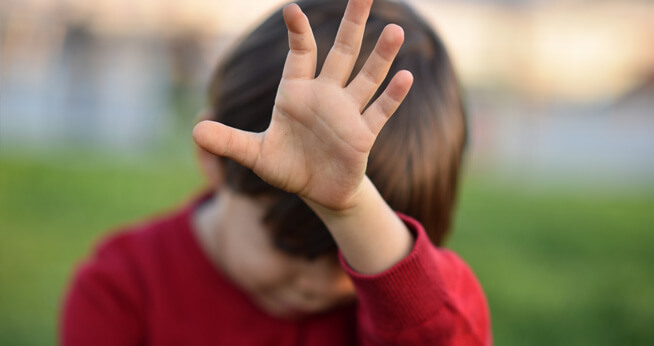7 Signs of an Abusive Nanny & What You Can Do

Any parent who trusts a babysitter or nanny to provide safe and reliable child care must know the warning signs of abuse. Babysitters are common perpetrators of child abuse against the children in their care, and abuse may continue unchecked if the parents do not know how to recognize the warning signs of an abusive babysitter.
1. Changes in Your Child’s Behavior
Children react to abuse in different ways, but most will display some noticeable change in behavior. For example, a child who is usually energetic and outgoing may suddenly appear timid and clingy, or an older child may show regressive behaviors like bedwetting or thumb sucking. If any changes like these appear after a child has spent time with a sitter or nanny, the issue demands further investigation.
2. Fear or Resistance When a Sitter Comes Over
Does your child protest when your babysitter comes over or when leaving him or her alone with anyone? If your child seems to hate it when a particular sitter is over, take this as a warning sign. Your child may be unable to articulate the reasons for his or her protests, but if such protests focus on a specific individual rather than babysitters in general this should be cause for alarm.
3. Frequent Accidents and Injuries
If your child always seems to suffer some type of scrape, bump, or bruise when the babysitter is at home with him or her this could indicate poor supervision or worse, direct physical abuse. Thoroughly investigate the cause of any accident or injury. If you ask your child what happened and the babysitter seems to jump in with an excuse, the sitter may be trying to cover up abuse.
4. An Inattentive or Disinterested Sitter
When you give a sitter instructions, he or she should pay close attention to them and take notes or recite them back to you. If a sitter seems to simply nod and ignore your directions, the sitter is not taking the job seriously and may not provide adequate supervision. A sitter who often arrives late or leaves early due to scheduling conflicts should also be a red flag.
5. Children Have Difficulty Sleeping
If your children usually sleep well and then start having nightmares or bedwetting issues it could be in response to trauma. Children often rationalize traumatic events in strange ways, and they may not realize that was has happened to them was wrong. These issues often manifest subconsciously as night terrors or difficulty sleeping.
6. Signs of Poor Supervision
When you return home after having a nanny stay with your children, is the house in good condition? If the sitter allows the children to make messes it could indicate a lack of supervision or simple laziness. Illness from ingesting inappropriate foods or toxic household substances could also indicate poor supervision.
7. General Unreliability
If you send your sitter a text message while you are out of the house, can you expect a prompt response? Your sitter should be professional and courteous and this includes scheduling and communication. If you cannot rely on your sitter to respond to your calls or messages when necessary, this is a major red flag.
These are just a few of the most common signs of an abusive nanny or babysitter. Ultimately, vigilance and communication are the best defenses against this type of abuse. If you suspect any form of babysitter abuse, try to talk to your child about your concerns. However, do so in a way that does not involve leading questions. For example, instead of asking your child directly whether the sitter has hurt him or her, ask more open-ended questions and allow your child to answer in his or her own way.
If you have strong reason to suspect babysitter abuse or confirm such abuse has taken place, call the police immediately to file a report and then contact a child injury attorney about your potential options for legal recourse.

